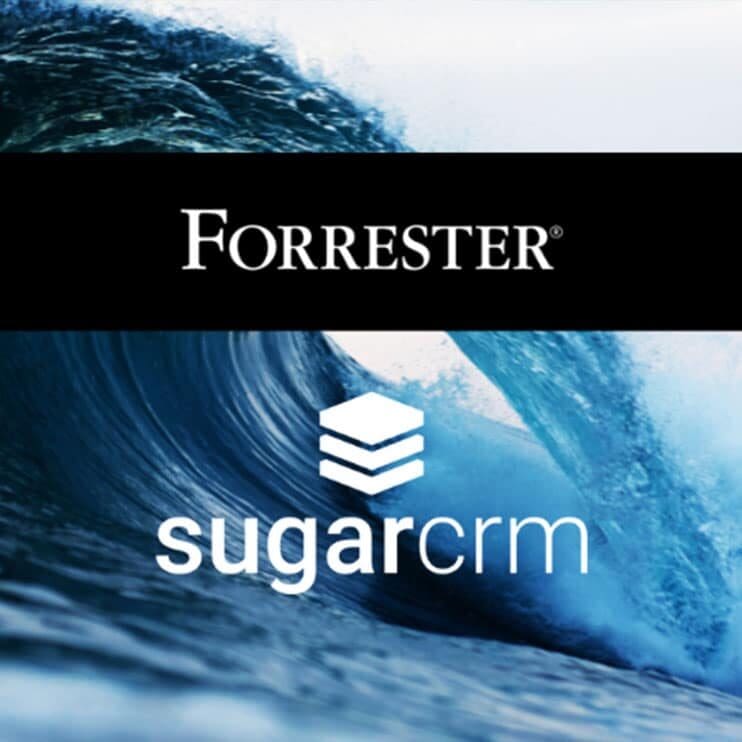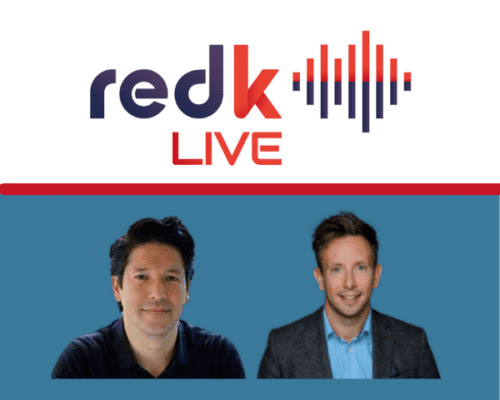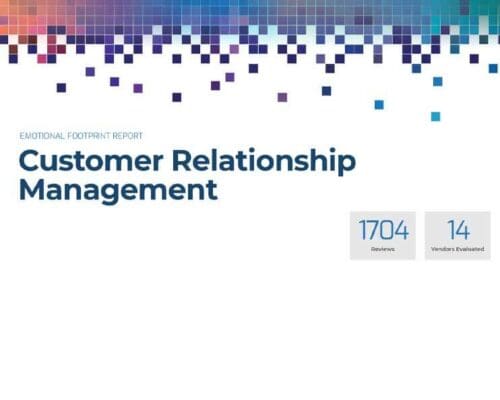Forrester rates SugarCRM a ‘strong performer’ in CRM solutions and offers advice on choosing the right implementation partner
A 2021 Forrester report(1) evaluates the sales force automation (SFA) providers ‘that matter most’, and through detailed research, analysis, and scoring, demonstrates how each of them measures up. SugarCRM received a positive evaluation from the highly respected and objective research company, with a final rating of ‘Strong Performer’.
Forrester reports that SugarCRM’s highlights include ‘workflow support powered by a BPM engine, customer journey visualisation, and a robust renewals console for recurring revenue management’.
SugarCRM empowers teams to work across the customer lifecycle
In assessing the capabilities of CRM providers from small, independent firms to industry giants, Forrester reports that SugarCRM empowers collaboration between teams by giving users a full understanding of the customer journey, even anticipating their needs before fulfilling them.
The report also highlights our solution’s actionable insights such as health scoring, predictive forecasts and next best actions, which extend into CPQ (Configure, Price, Quote) and partner relationship management. These capabilities are right up there with the market leaders, the report states, with the majority of almost 4,000 customers using the full suite in high-skilled business services, manufacturing, financial services, tech and software sectors.
Forrester also emphasises the core Sales Force Automation capabilities of Sugar Sell, which strengthen the overall offering with add-ons such as sales intelligence, embedded chat capabilities and voice support, AI lead and opportunity scoring, and ideal customer profile discovery. Overall, Forrester confirms that surveyed clients enjoy the suite’s flexibility and praised our customer centricity, pointing out that SugarCRM is particularly effective for organisations where rapid time-to-value and ease of use are prerequisites.
Forrester’s analysis of the CRM solution ecosystem
Another 2021 Forrester report(2) outlines how to successfully identify and select a CRM solution partner, and work with them through the implementation of the chosen solution. In doing so, Forrester lays out some key findings on the current state of the CRM technology landscape, addressing some of the issues facing application development and delivery (AD&D) professionals in what has been and remains a challenging time for the sector.
Offering advice on best practices for finding your organisation’s ideal solution, Forrester makes a series of observations to provide a backdrop for their recommendations. A number of key findings on the current state of the CRM ecosystem and its direction include:
- Navigating the CRM ecosystem is a challenge, but CX improvement can boost revenue dramatically.
- The current CRM vendor landscape is characterised by commodification, consolidation and fragmentation of end-to-end CRM technology.
- Firms are purchasing CRM solutions to solve specific business problems, increasingly fragmenting front-office applications into discrete silos. This allows for a high degree of customisation and a choice of specific functionalities.
- Underlying CRM platforms are more strategic. As sales, marketing and service applications fragment, unity of data, processes and security becomes increasingly important.
- CRM ecosystems deliver value through point solutions, such as eSignature, that extend and enhance the core value of CRM.
- CRM suites can be categorised by organisation size, generally suiting large, medium-sized or small organisations, or offering narrow, specialised functions.
Best practices for choosing a strategic CRM partner
In making such an important decision as a strategic CRM partner, Forrester recommends a four-step selection process following the Proof of Concept evaluation model. Forrester asserts that a decision that will affect your company so profoundly cannot be made with the outdated Request For Proposal methodology. The four stages comprise:
1. Organise
Forrester recommends that before beginning the search for a CRM implementation partner, organisations begin by setting a charter, organising a dedicated team, defining their requirements and analysing possible alternatives.
2. Narrow
The second phase comprises the identification of candidates, narrowing down possible choices and the determination of selection criteria.
3. Evaluate
Forrester’s third phase involves the development of demonstration scenarios, scripted demos, and the assessment of the technology and its flexibility. Costs should be analysed during evaluation, vendors scored, and contract negotiations conducted with suitable partners.
4. Decide
Phase four is decision and implementation. Once a CRM partner has been chosen, the solution must be validated with proof of capability before any move to implementation.
Forrester offers one key piece of advice that must be applied throughout the process: successful implementation will require that vendors focus on your core business objectives from start to finish. If the vendor doesn’t have your aims at the forefront of their minds when designing the solution, the implementation is more likely to fail. Forrester also advises that organisations contemplating the choice of CRM partner do not eliminate the smaller, innovative vendors, as they can often provide the most flexible solutions.
According to Forrester, ‘Technology advances like SaaS, business process management, rich clients, mobile devices, and social collaboration may have given smaller vendors the upper hand in building the most innovative and flexible solutions’.
CRM transformation can be a challenging process, but redk has 15 years’ experience in consulting with partners on their most important journeys. We are here to help you choose the right tools and strategies for digital success.










